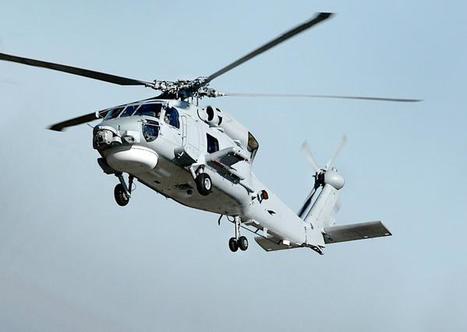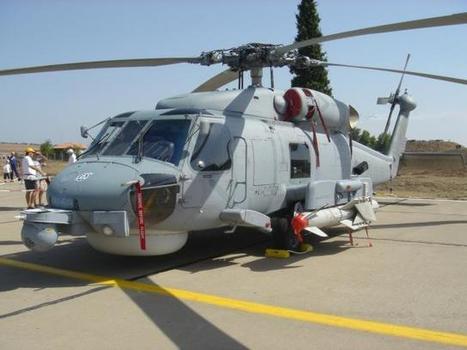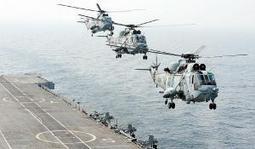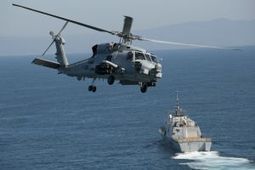The U.S. Navy’s plan to cut short a multi-year deal for maritime helicopters may have serious implications for Sikorsky Aircraft Corp., as well as the military and the broader defense industry, a company official said.
For instance, the deal doesn’t just include the sea service. In July 2012, both the Army and Navy inked the five-year, $8.5 billion contract with the subsidiary of Hartford, Conn.-based United Technologies Corp.
The agreement called for the services to buy at least 653 helicopters through December 2017, including a mix of UH-60M Black Hawks and HH-60M medical evacuation variants for the Army and MH-60R and MH-60S Seahawks for the Navy. It also included options for an additional 263 aircraft, increasing the potential value of the deal to $11.7 billion.
“The impacts, no matter what the scenario, are very significant to us,” Tim Healy, director of naval helicopter programs for Sikorsky, said in a telephone interview. “That’s why we’re so concerned.”
Automatic budget cuts known as sequestration forced the Navy to take the surprising — some say unprecedented — step of canceling plans to buy 29 MH-60Rs in fiscal 2016, the last year of the contract. The service determined they won’t be necessary if it decides to decommission one of its 11 nuclear-powered aircraft carriers, the USS George Washington (CVN-73).
But the multi-year deal was based on both of the services buying the agreed-upon quantity, so if the Navy backs out, the Army would also be affected, Healy said. “It’s not just a multi-year contract, it’s a multi-service contract,” he said. “The contract is such that if you cancel the contract, you cancel it all.”
Like in other multi-year contracts, the company offered more favorable pricing terms in return for a longer-term commitment for orders from the government.
The Defense Department uses “multi-year procurement” (MYP) or “block-buy contracting” (BBC), as the deals are officially known, to purchase all sorts of weapons and equipment, from aircraft and ships to tanks and trucks to rifles and missiles. They’re estimated to save anywhere from 5 to 15 percent compared to annual contracts, according to an April 1 report from the Congressional Research Service.
“Our program — the Romeo, specifically — it’s even higher than that,” Healy said.
Sen. Carl Levin, D-Mich., chairman of the Senate Armed Services Committee, has said canceling the Navy helicopter contract would cost about $250 million. That appears to be only what’s listed in Navy budget documents as funding for advancement procurement in 2016, meaning the true cost of termination could be higher.
As part of the contract, Sikorsky still intends to deliver versions of the helicopter to the governments of Australia and Denmark, and is actively seeking other opportunities for international sales of the aircraft, Healy said. Under a so-called foreign military sale (FMS), the U.S. buys weapons or equipment on behalf of a foreign government.
“We’re looking forward to FMS sales but there aren’t many FMS sales that would involve 29 aircraft in a single year,” he said. “The U.S. Navy is unique in its position.”
While Navy officials and the Pentagon’s top weapons buyer have signaled they’re looking for ways to preserve the deal, the situation has spooked defense contractors and their suppliers.
“Industry and the government are going to be put into a very tough position about making those long-term cost-savings and investments, when the threat of cancellation becomes more predictable,” Healy said. “As a taxpayer, I fear the government is not going to get those cost-savings going forward if there’s not the confidence in the industry that the multi-year contracts will be followed through on.”
Via
Valerie I.



 Your new post is loading...
Your new post is loading...












Le NH-90 ayant été éliminé il y a un mois, il n'y avait plus aucune surprise sur ce choix :
http://sco.lt/8QpNh3